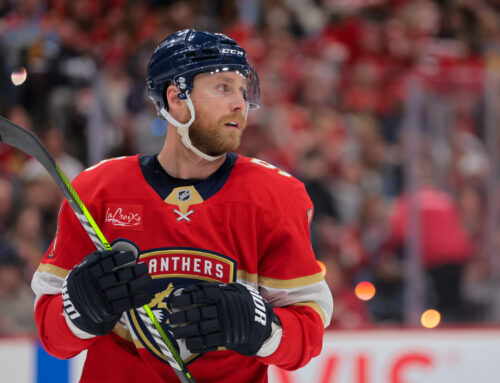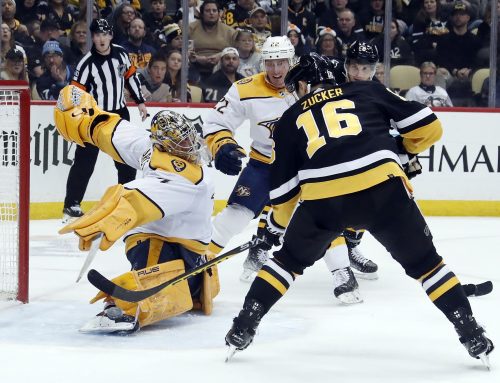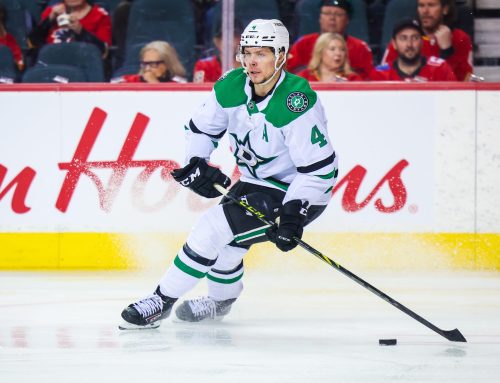
Just a few days ago we finished up a fantasy baseball draft on the forums (I know this isn’t what you’re coming here to read about, but there is a point to this). You can find the picks here if you’re really interested. With our league setup, there’s a focus on starting pitchers, and infielders (or at least I find there is). It got me thinking a little bit about position scarcity, and how it can be applied to be successful in fantasy sports. I myself am not a massive baseball fan, and there is no way I could write articles about it, however, I understand the basics of value in fantasy sports, and find myself doing quite well in the competitive leagues I join. The same can be said with football, especially considering I watched one game all year, and it was the Super Bowl. Generally, I find I do well because I am able to identify positional scarcity within a league, and draft around that.
In the baseball draft linked above, I had the second overall pick, and went a little off the board with that selection just to get a position I felt I really needed. I then went very heavy with starting pitching and didn’t even draft a catcher.
In my football league, I came second after being the only one to draft a running back in all of the first three rounds.
In hockey, it’s not really a huge secret that the wings are tougher to find than centres, the value of defencemen drops off more drastically than forwards do, and goalies are voodoo.
How then are you supposed to value them against each other, and put together the best fantasy team each season? Especially when you throw a salary cap on top of everything else, it’s just pure madness.
Yahoo actually manages a decent algorithm with their season stats ranks, and FantasyHockeyGeek does an excellent job amalgamating data into a more numbers-based approach to rankings. That being said, they are just tools, and without the understanding of what you’re using, it is difficult to get a leg up on the competition with it.
****
League Settings
League settings are the single most important thing to try and understand when looking for an advantage in your league. Between leagues with skewed add/drop rules that lead to streaming, lopsided counting stats leading to backup goalies being valued more than a top line winger, salary caps too low that John Carlson isn’t owned for over half of the season, there is too wide a variety to cover. I have been in leagues with each of these problems, and taken advantage where possible.
One of the biggest discrepancies between leagues, is how many players of each position start per day. If a league moves from two goalies per day down to one, then the value of goalies drops drastically. If a league setup starts six forwards and four defence, or anything more slanted towards defence than a three to two ratio, the value of defencemen in your league should be very high. Depending on how all of that lines up, usually you can target your draft strategy around targeting weaker positions early.
On the flip side, every summer there is talk about how deep the centre position is, and the focus turns to finding bargains on the wings. Fast forward to February/March, and you have double the amount of wing eligibility on your roster as you did at the start of the year; it becomes a non-issue. While everyone is stacking up their wingers, don’t be afraid to take a few extra centres such as Brayden Schenn, whom we knew was going to acquire wing eligibility.
Pop by on the forums whenever you have ideas or strategies, as that is the perfect place to bounce ideas off of other hockey minds, some of which may have already tried your theoretical strategy, and have some pointers for you.
****
Targets in Cap-Leagues
Buys:
Eric Staal – Signed for another two years at the best cap hit you will find in the league for a top line centre.
Mats Zuccarello – Currently injured and a UFA. Bets are that he signs with Dallas at a reasonable cap hit, and lights it up next year with their top scorers.
Calle Jarnkrok – One of the most team-friendly contracts in the game, and with Simmonds gone in the summer, a second line winger slot will be a battle between him and Craig Smith.
Scott Mayfield – The most team friendly contract in the league right now. It’s cheap, it’s long, and Mayfield provides excellent peripherals as a filler in deeper leagues.
Sells:
Patrice Bergeron – You can get truckloads in return for selling Bergeron and his contract this summer. He’s turning 34, and one of the most oft-injured star players with more than his share of serious/nagging injuries too.
Victor Hedman – Looking as though he could follow the Drew Doughty/Alex Pietrangelo route as a top defenceman where the real-world value surpasses the fantasy value. You can’t afford to spend that much on defencemen who aren’t netting you 60 points plus peripherals.
Ryan Dzingel – The Contract prediction model has no name value taken into account, and it is showing that Dzingel has earned himself a bigger AAV next year than Joe Pavelski. You have been warned.
Charlie McAvoy – In a November Ramblings, Michael Clifford went over why McAvoy could be a good sell candidate. In short, he has a high secondary assist rate, a miniscule shooting rate, and needs a new contract that will likely be much more than he is worth to fantasy GMs.
****
Over-Correcting
A little story about overcorrecting for market value. In one of my leagues (cap league), there are 24 teams, and one a single goalie start is needed each week. I traded off any starter I had last summer, going into the season with a duo of Jack Campbell ($675,000) and Casey DeSmith ($675,000). With the savings in net, I was able to stack up skaters, which led to being tied for second place at the finish of our regular season. Unfortunately, I ran with Casey DeSmith for the week, and he didn’t get a single start, which ended up costing the matchup. There is such thing as going too far in one direction, and that apparently is the limit.
****
All this is to say that just because the rest of your league may do things one way, doesn’t mean that you can’t succeed despite doing the opposite. Challenge the beliefs of you league. Try zigging while the others zag, and sometimes the results may surprise you.
****
That caps off this week’s article, thanks for reading. As always, you can find me on twitter @alexdmaclean.
****
Previous Capped articles:
Deeper Streaming Additions for the Stretch Run
Reviewing the Trade Deadline and Looking Ahead
****
All salary info from capfriendly.





 TOR
TOR S.J
S.J ANA
ANA EDM
EDM CAR
CAR DET
DET CGY
CGY VAN
VAN BOS
BOS NYI
NYI
